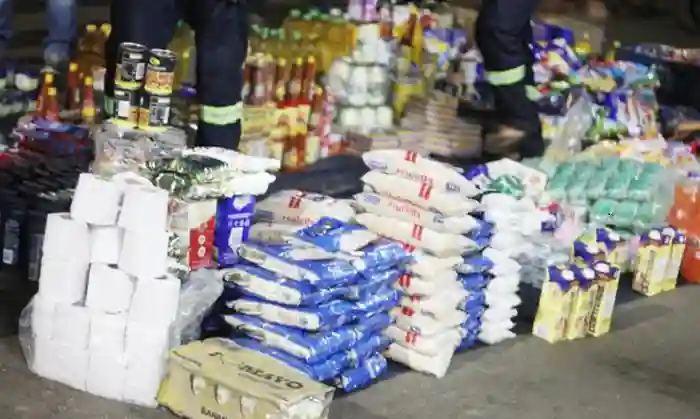The Harare City Council is blaming building owners for the influx of tuckshops in the central business district (CBD). The local government authority says business owners are illegally renting their buildings out to foreigners.
Street vendors and tuckshop traders are thriving, posing a threat to traditional supermarkets. The retail space is now dominated by foreigners, including Indians, Chinese, Pakistanis, Nigerians, Malawians, and Tanzanians.
The HCC small to medium enterprises committee chairperson Denford Ngadziore said the city fathers have an SME policy which has not been followed. He told NewsDay:
We know that most tuckshops are operated by foreigners which is against the law. Council has no power to come between business partners but building owners are renting out their buildings to foreigners who in turn convert them to retail shops.
The influx of tuckshops has led to lower prices and increased competition, benefiting consumers. Tuckshops can offer lower prices due to lower overhead costs, sourcing products directly from wholesalers, and flexible pricing. However, big supermarket operators complain of unfair competition, citing tax evasion and informal trading practices.
Finance Secretary George Guvamatanga questioned the validity of big retailers’ complaints about being unable to compete with tuckshops. He pointed out that tuckshops pay higher rentals, operate with cash purchases, and lack access to cheaper foreign currency, suggesting other factors may be affecting formal retailers.
Renowned economist Gift Mugano responded to Guvamatanga’s remarks and acknowledged that supermarkets have legitimate concerns. He attributed the high prices of goods in supermarkets to the exchange rate disparities between formal and parallel markets. Mugano said:
Your ministry liberalised the imports for about 11 products. These commodities are coming through duty free and VAT-free. Tuckshops are importing these commodities, whilst our supermarkets procure the very same commodities locally — a position that is economically and morally sound aimed at fostering job creation and local content.
Mugano also highlighted the compliance burdens faced by formal businesses, including taxes, levies, rentals, and salary payments. He emphasised that exchange rate fluctuations and inflation have negatively impacted formal businesses’ capital and cash flows. While the informal sector can sell in US dollars, formal businesses must comply with the law, which Mugano believes is appropriate.

